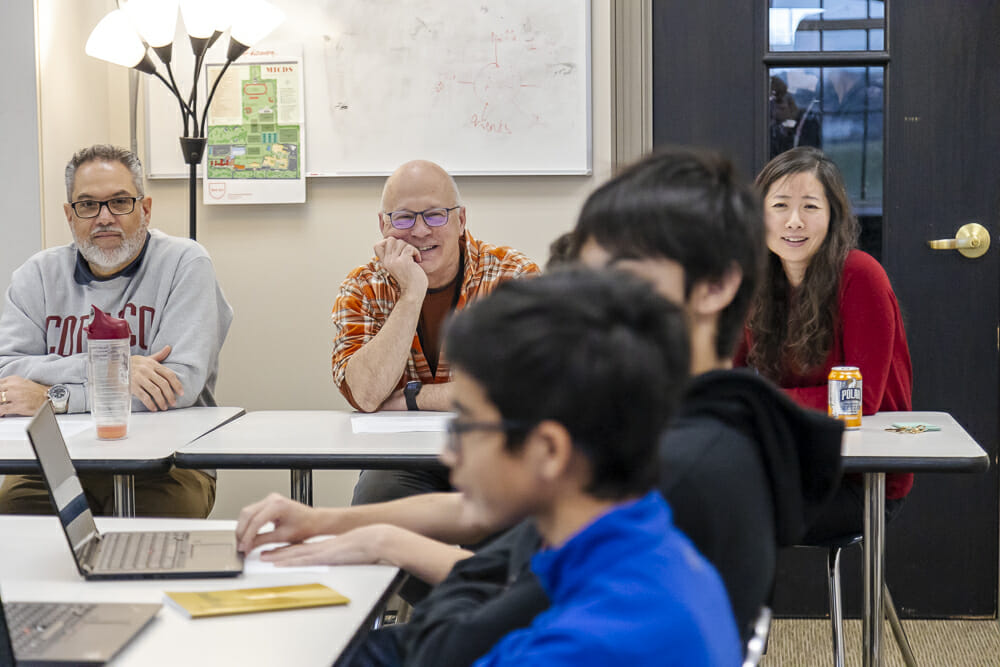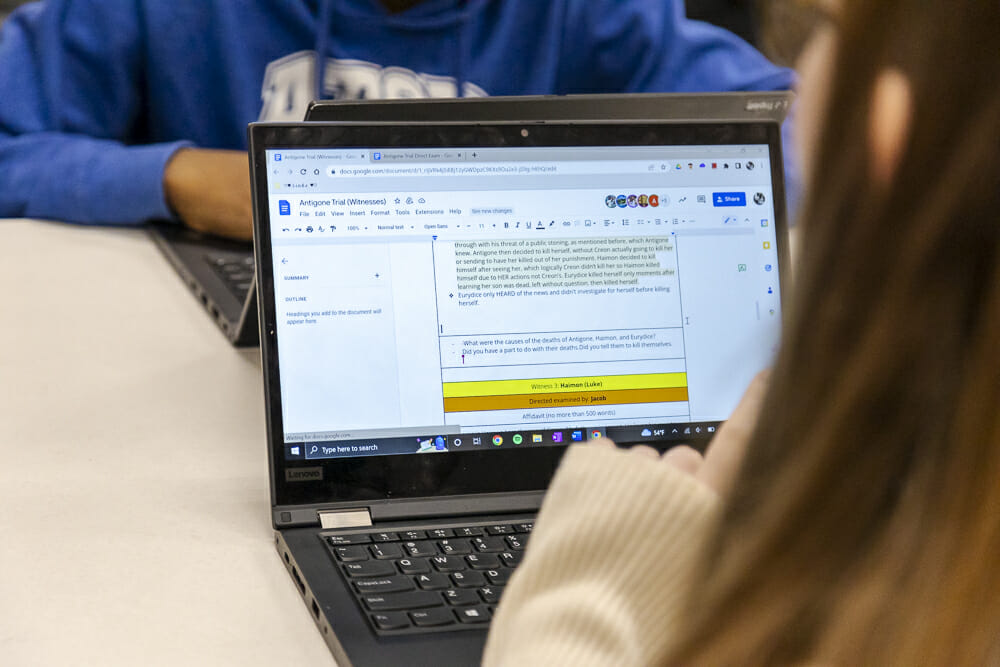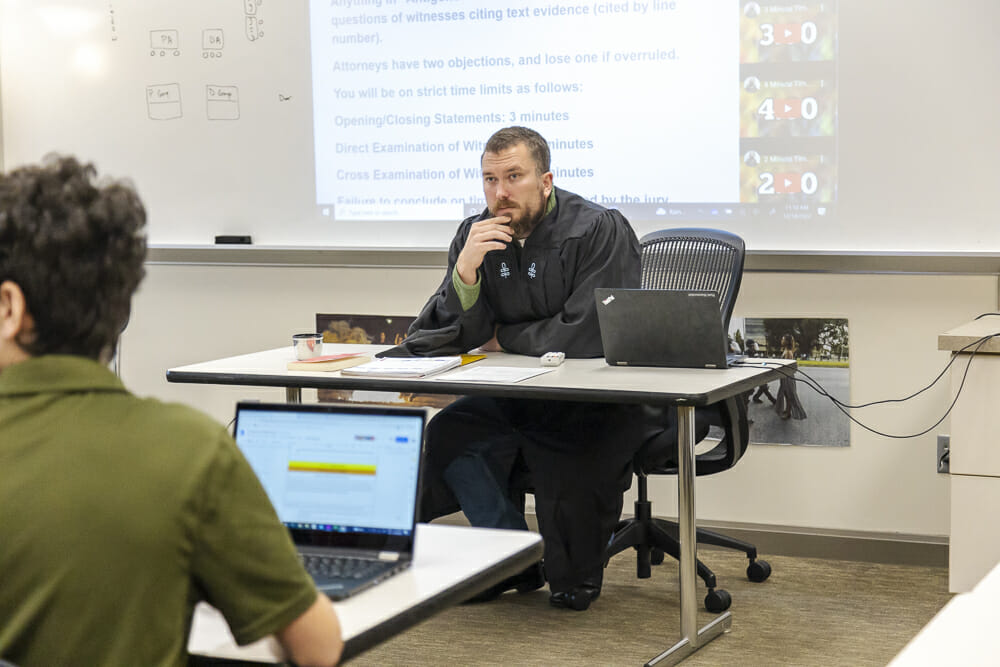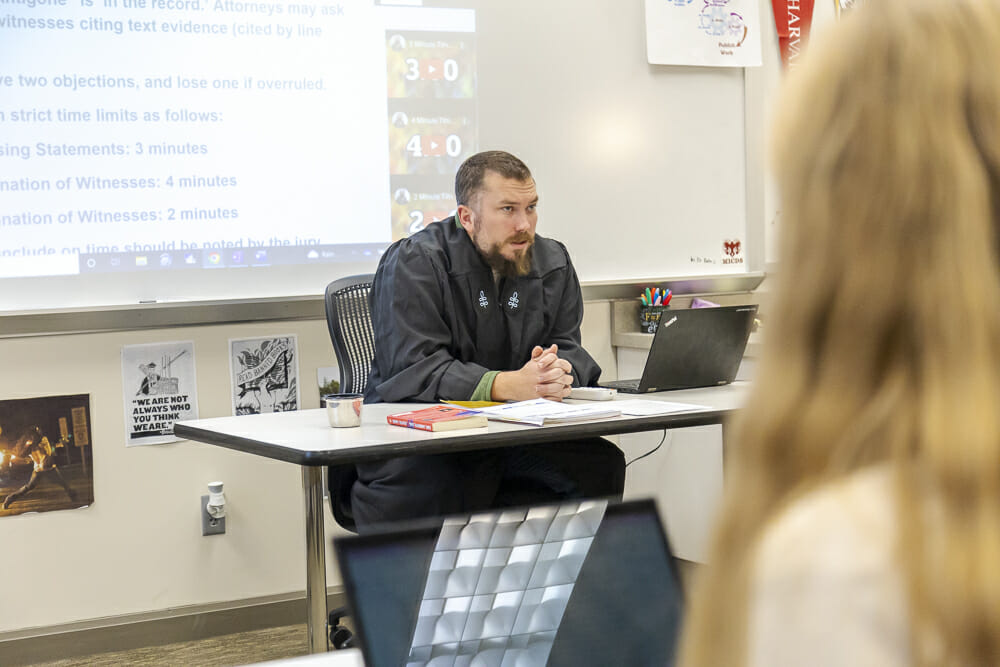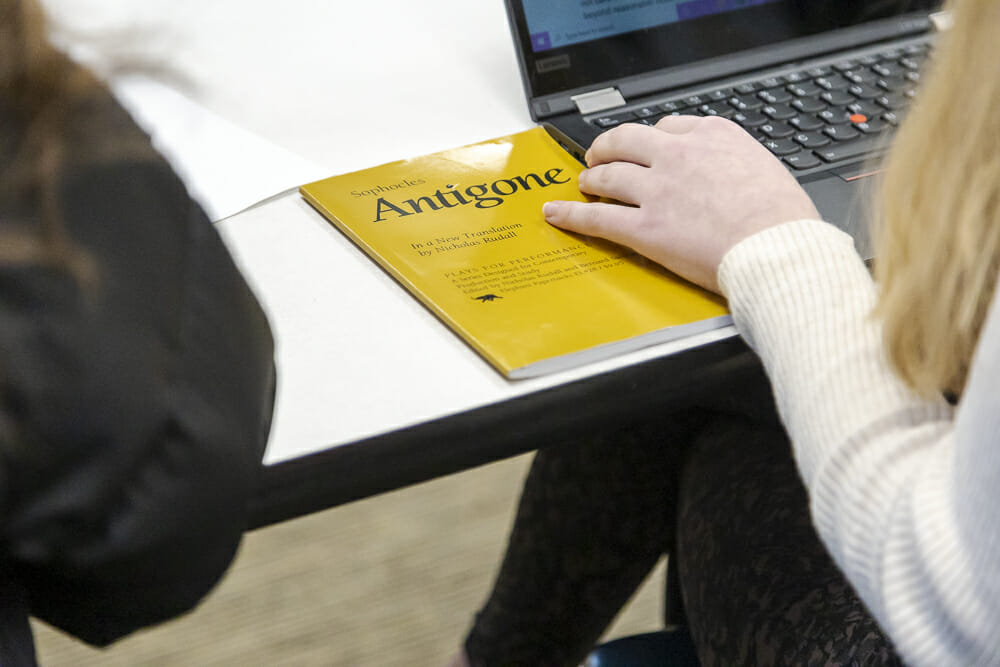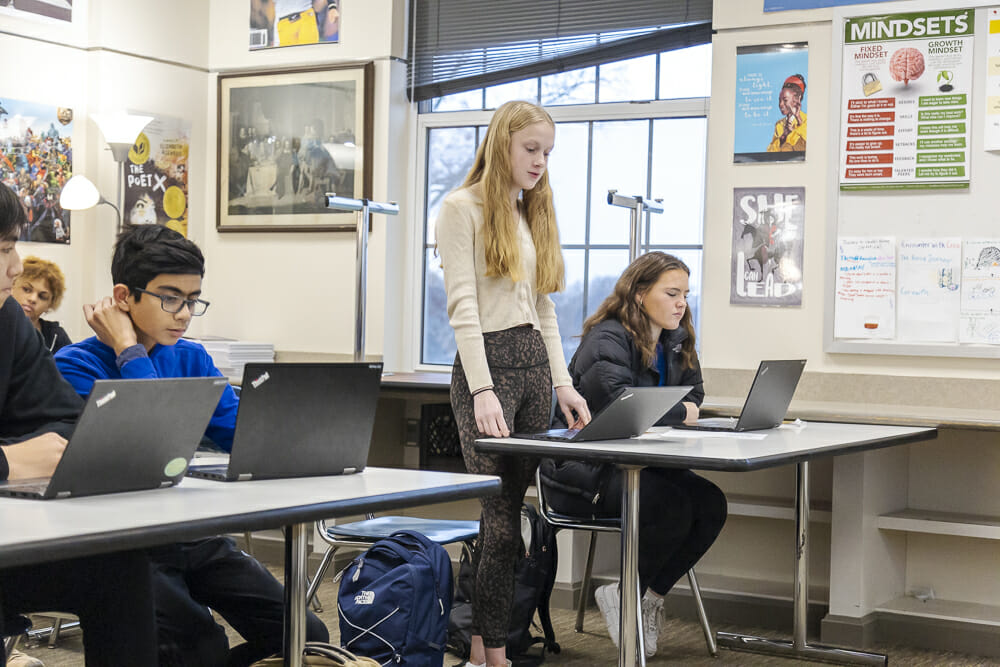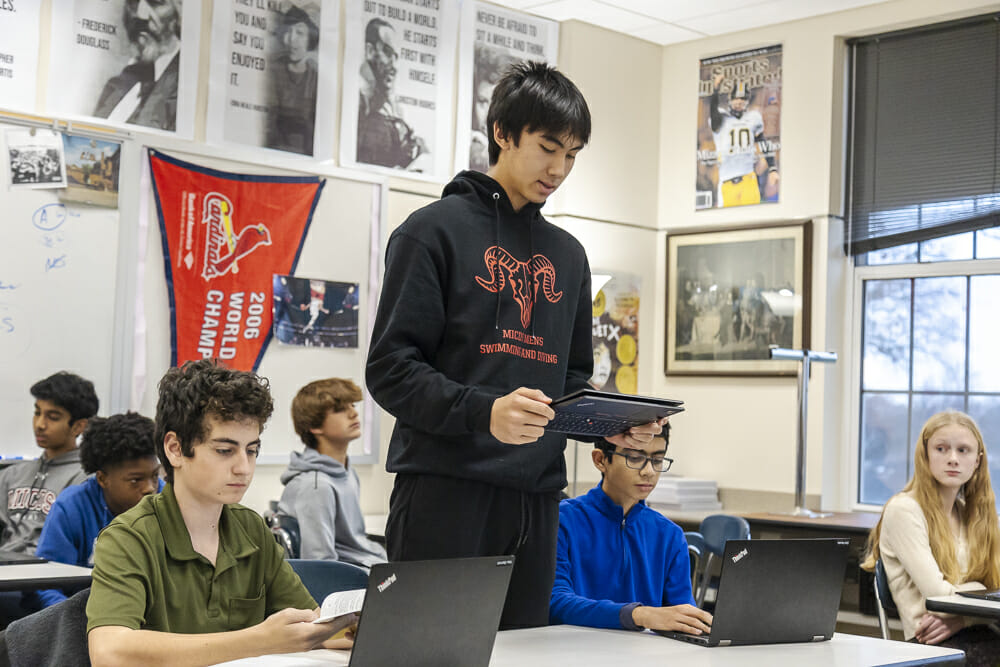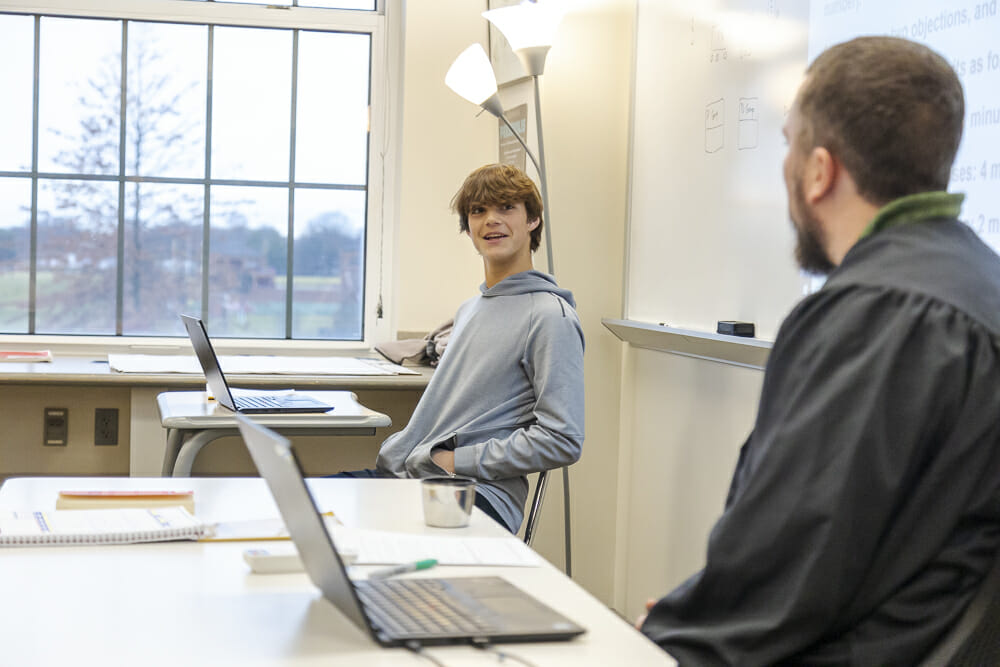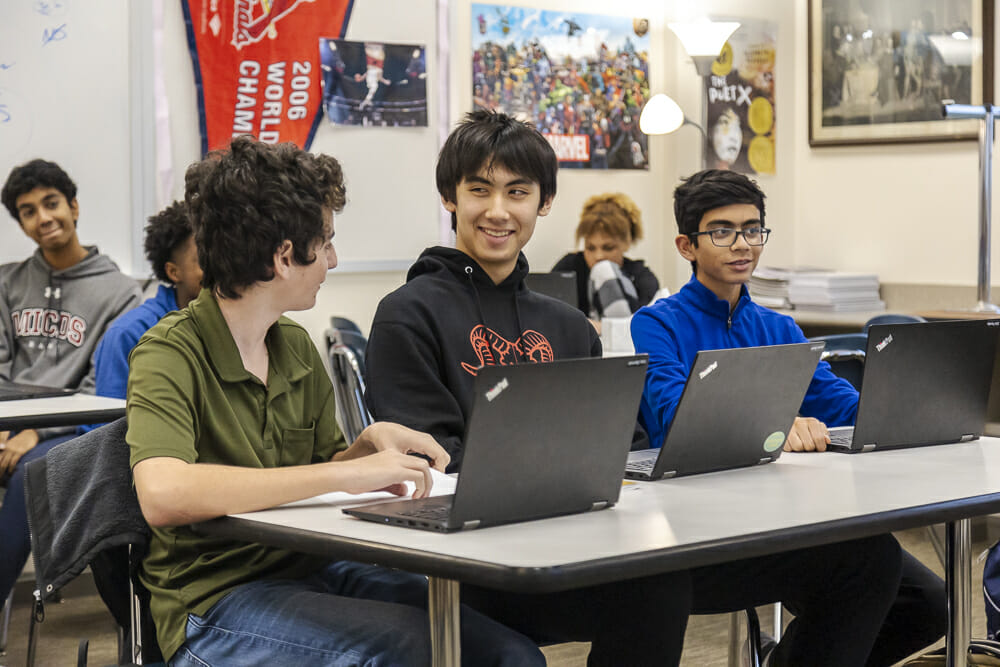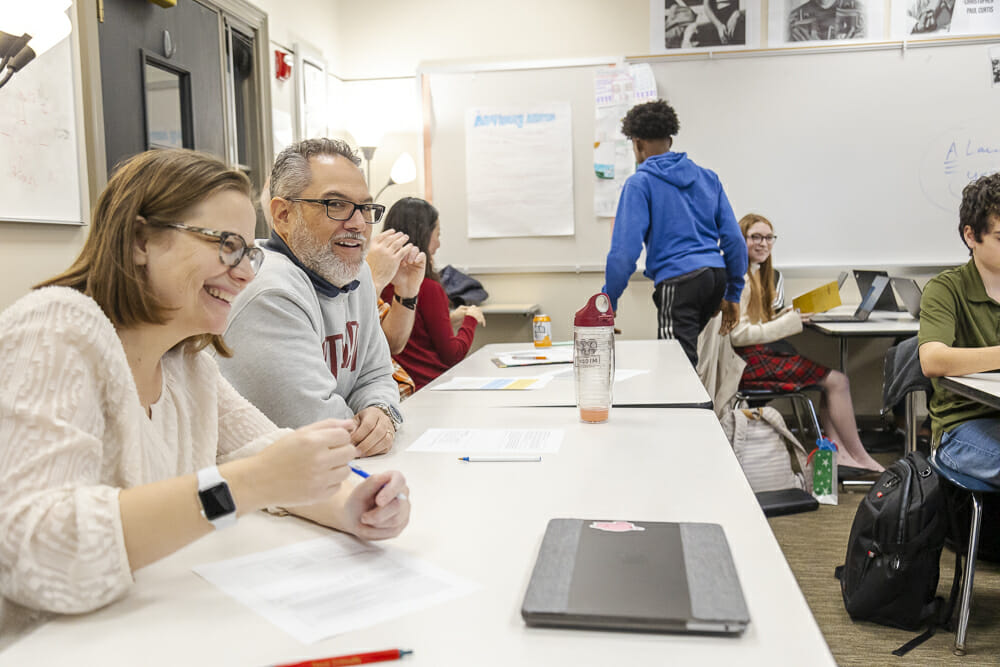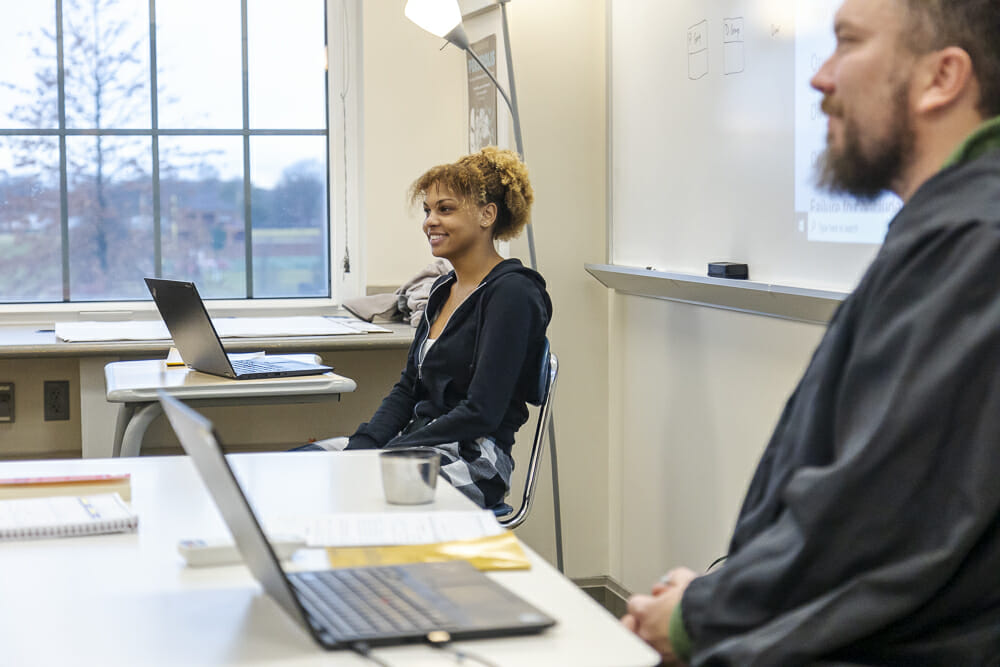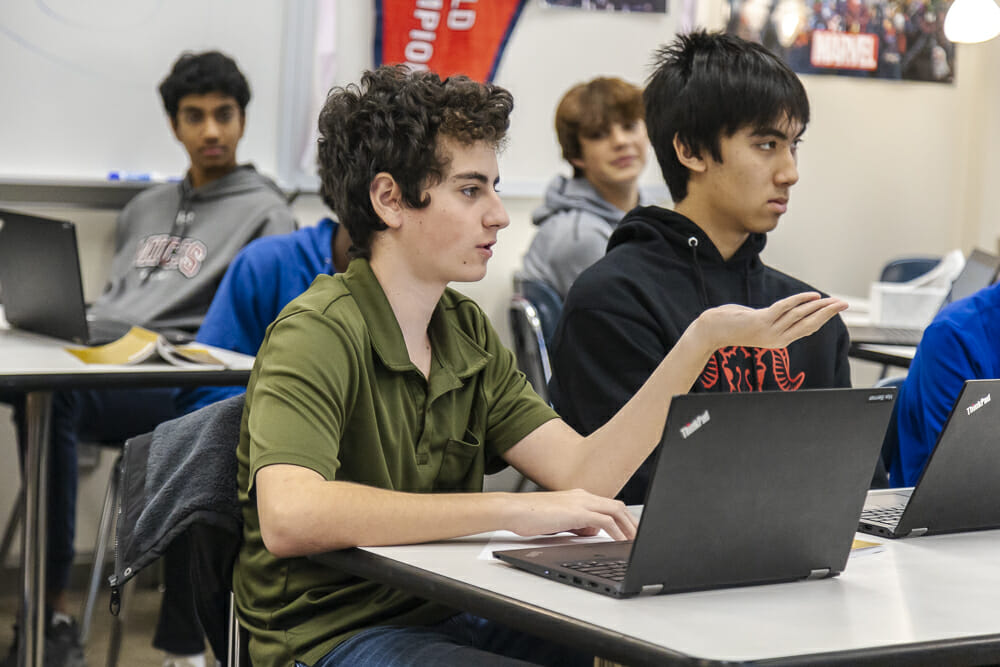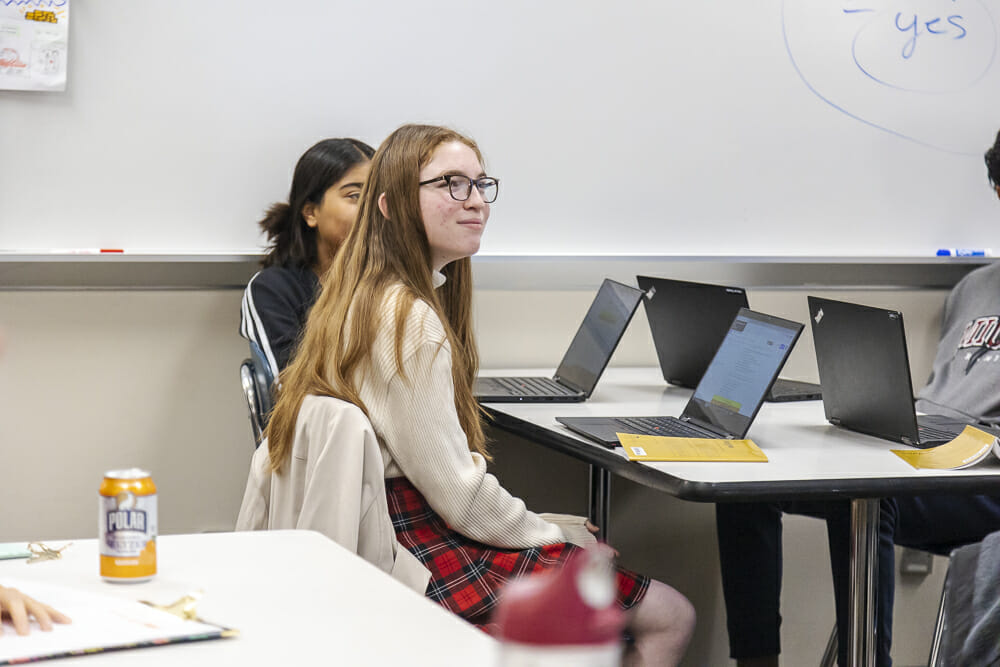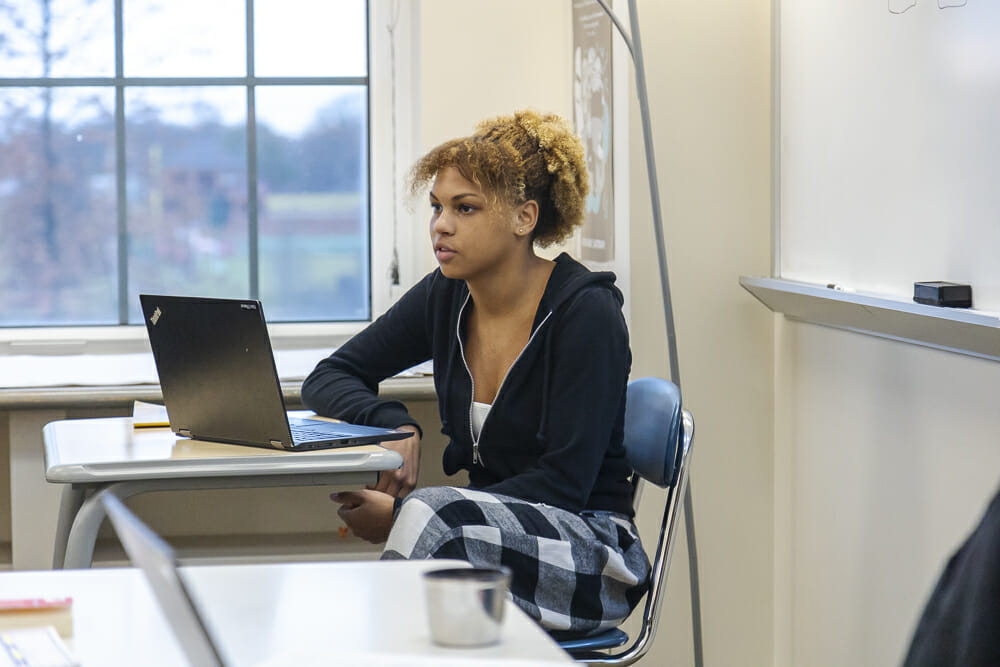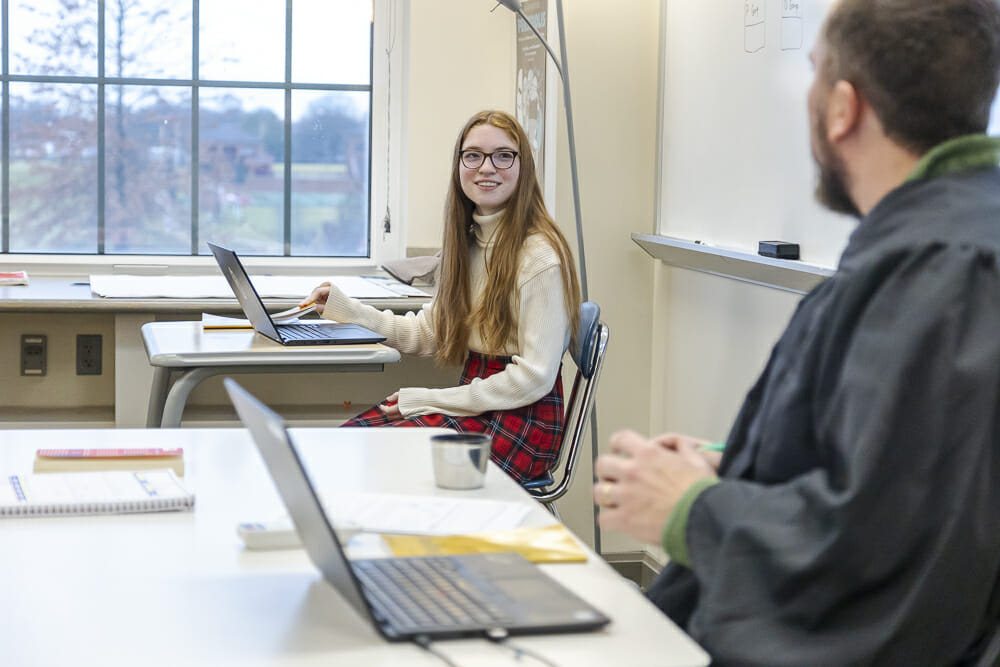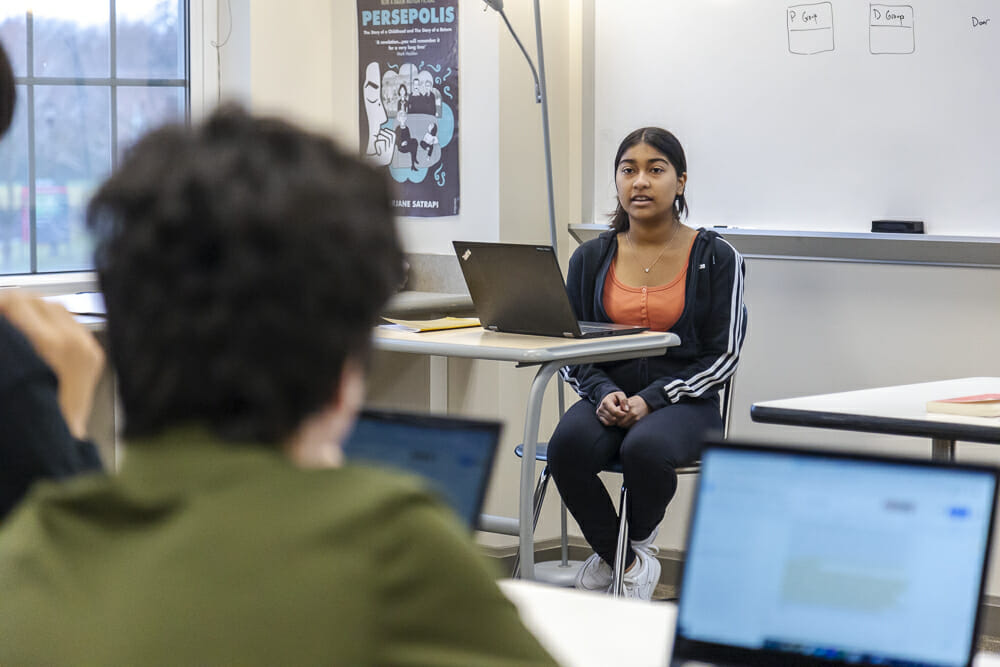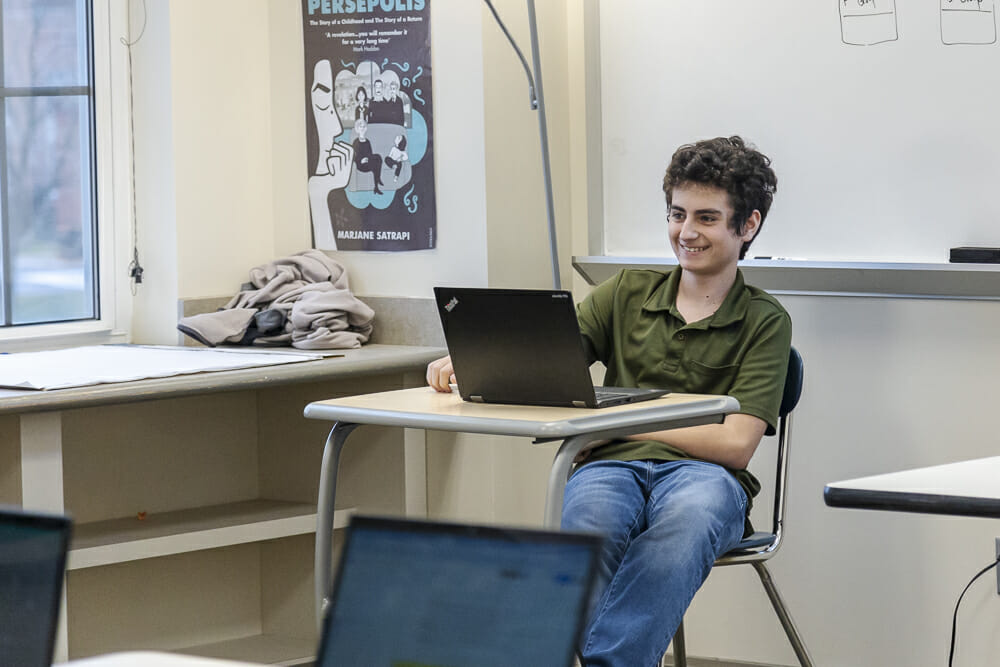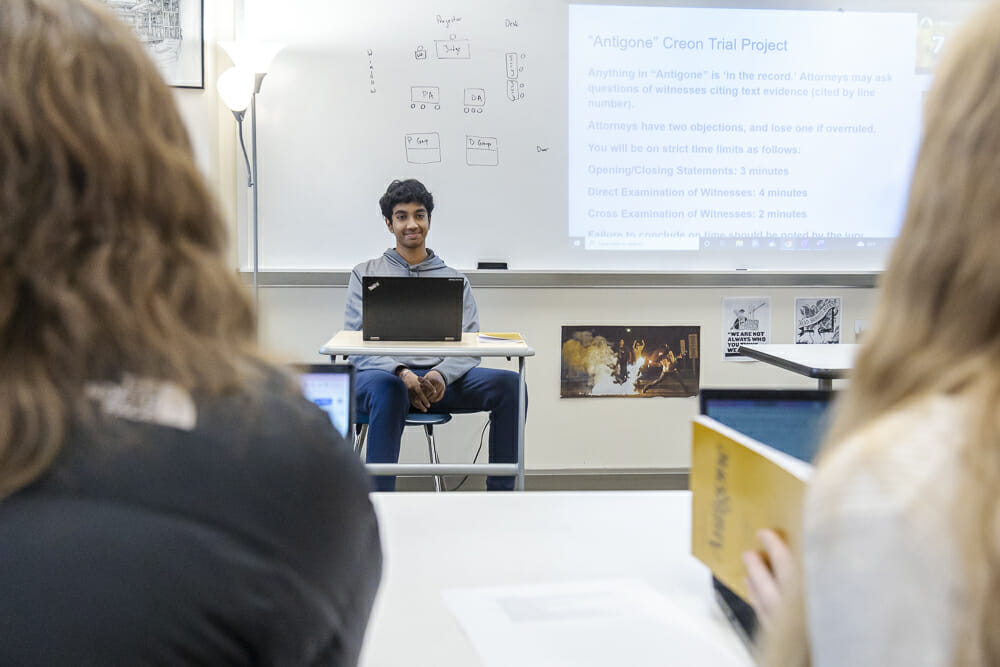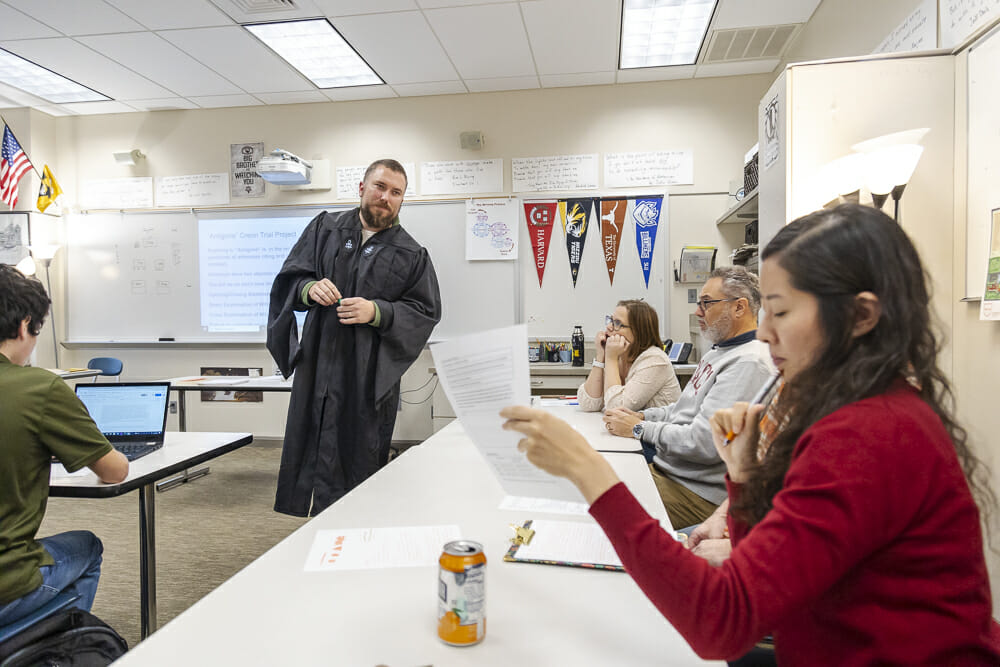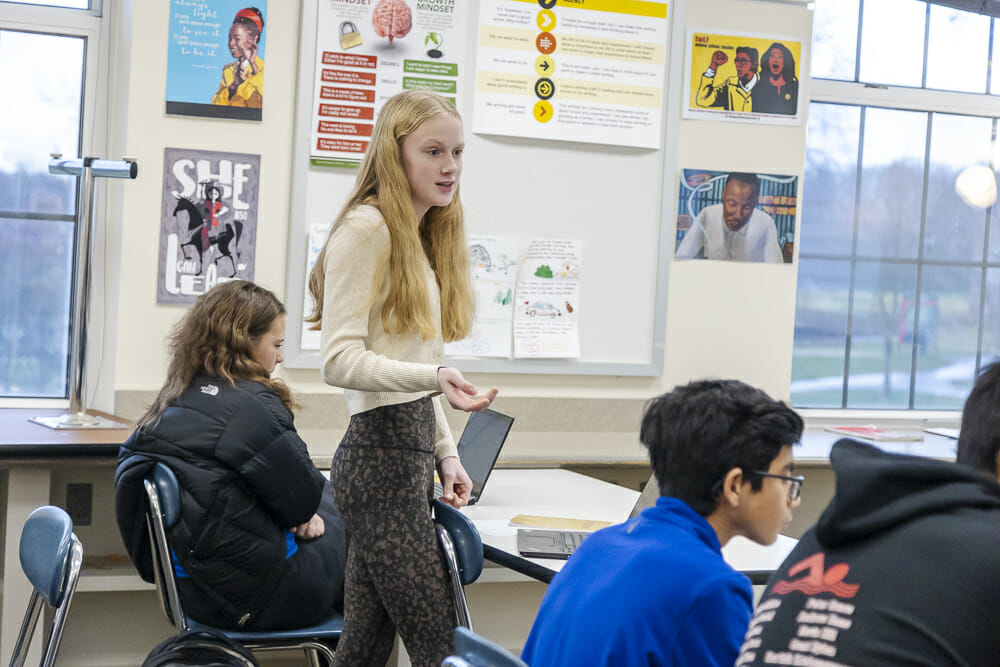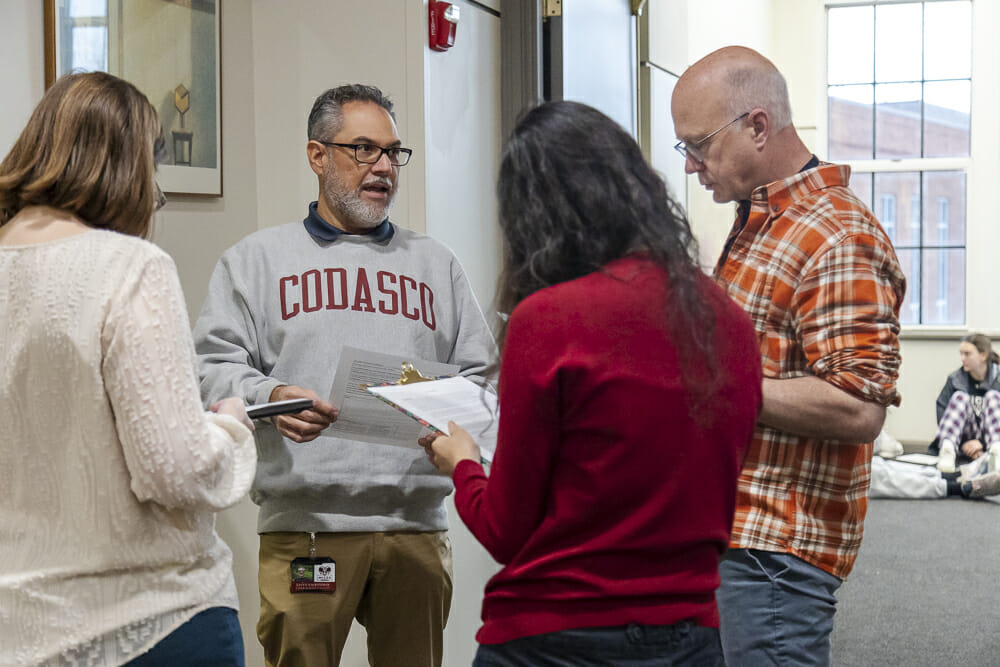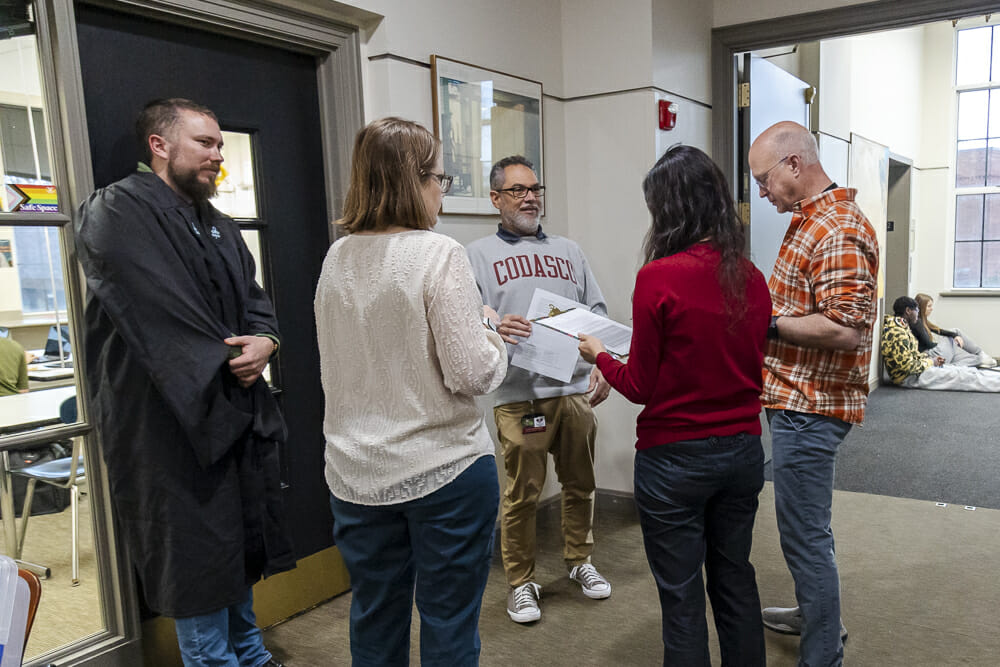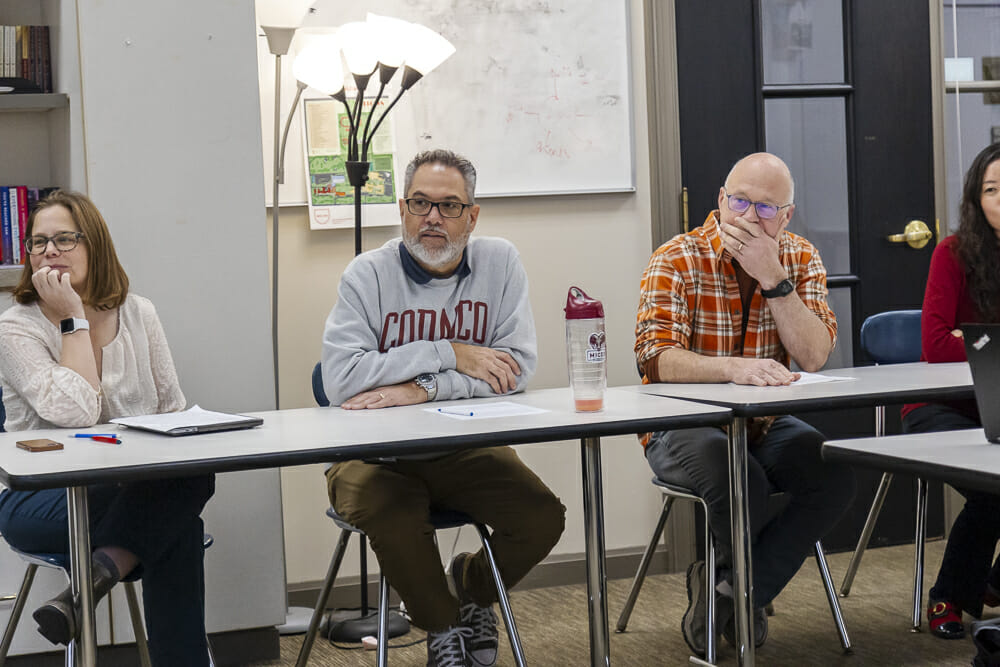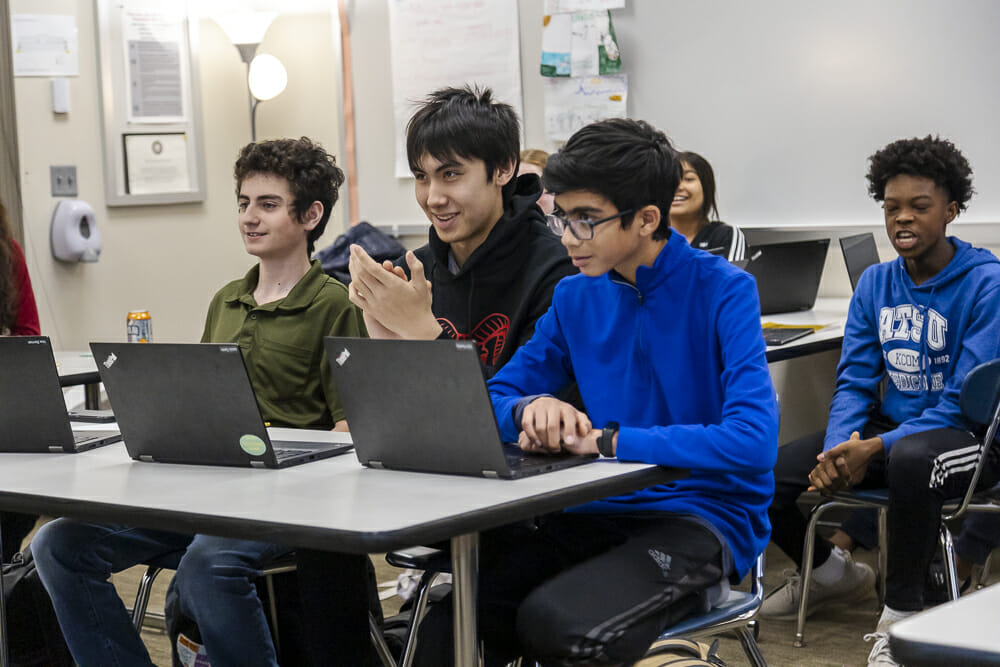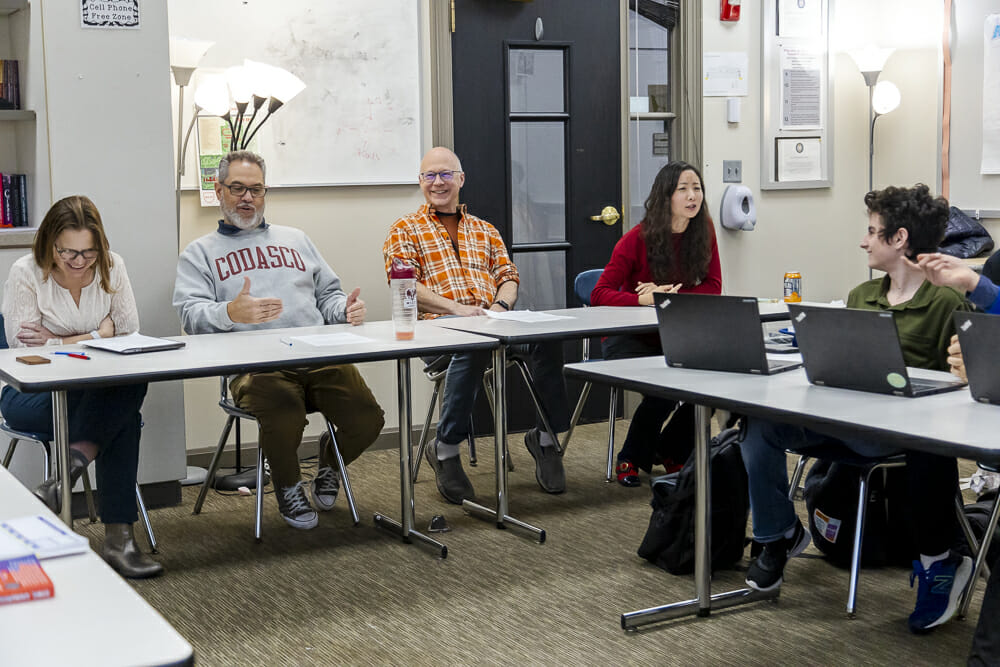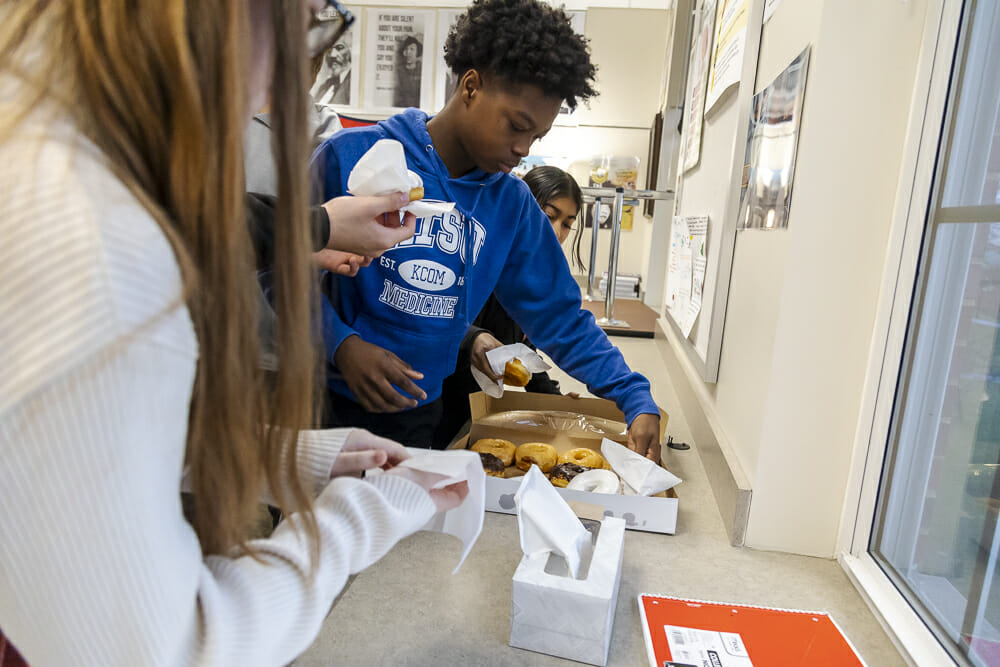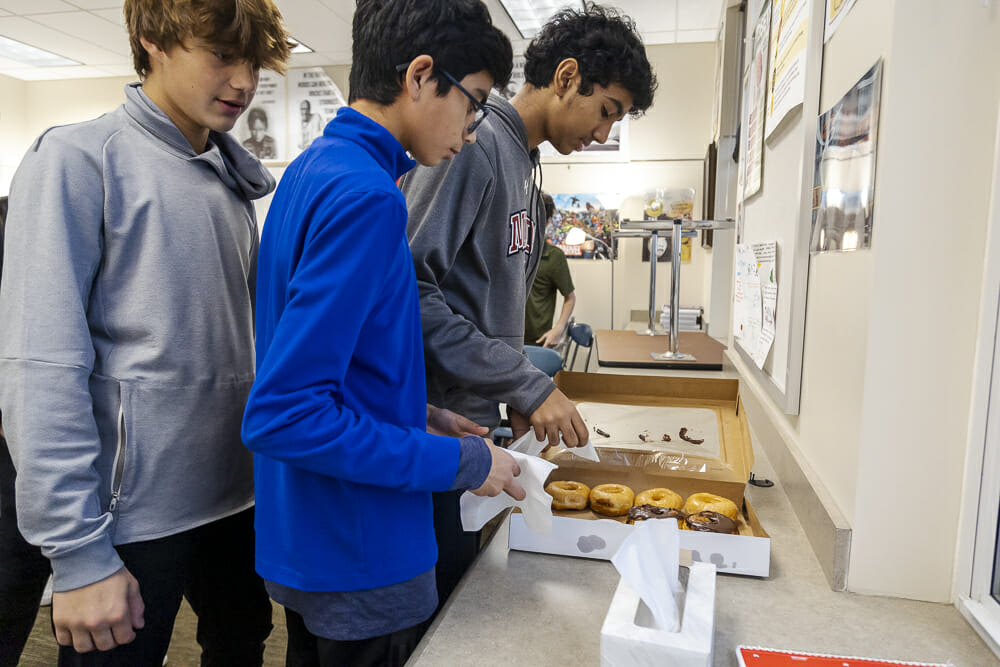Ninth-grade English students flipped the script and closed the first semester with a courtroom drama based on their reading and essays about the Greek tragedy Antigone. Beyond the standard dramatic re-readings in class, Upper School English Teacher Ryan Bueckendorf challenged his students with a pilot project: put King Creon, a central character in the play, on trial.
In the courtroom scenario, following the events of Antigone, Creon has been charged with three counts of wrongful death and manslaughter for the deaths of Antigone, Haimon, and Eurydice. The city-state of Thebes supplied prosecuting attorneys to work the case, and Creon was provided with a team of high-powered defense attorneys. Bueckendorf said, “In an incredible feat of defiance towards the laws of time, physics, and Ancient Greek jurisprudence, the trial took place in present-day America with all witnesses able to testify on the events of the play (even those who are tragically deceased).”
In most conventional readings of the play, Creon is the wretched hero whose hubris leads him to make inevitable errors in judgment which force the tragic conclusion of the play. However, the play also deals with the often irreconcilable tension between individual liberty and societal safety, and the caveats of free will, calling into question whether Creon should bear responsibility for the deaths on his watch.
Students split into groups for Creon’s prosecution and defense. In a criminal trial, the burden of proof is on the prosecution, and students must convince the jury beyond a reasonable doubt that Creon is guilty of these crimes. The defense simply needs to cast reasonable doubt on the idea of his guilt by offering an acceptable justification or another explanation for his actions.
The student attorneys wrote opening statements, prepared witnesses, developed strategic lines of questioning, and ran the show on trial day. Witnesses were responsible for considering the play from their character’s unique perspective and offering a one-page affidavit of their experience. On trial day, witnesses sat for direct and cross-examination from each side’s attorneys. Fellow Upper School teachers sat on the jury to determine Creon’s guilt.
Juror and Assistant Head of School for Teaching and Learning Sally Maxwell said, “Since the student lawyers could use textual evidence to question and challenge witnesses, and the witnesses had to know exactly what they themselves had said and done in the play, everyone’s facility with the play was immediately and hilariously tested in a real-world application.”
On the prosecution’s side, Akira Washington ’26 shared that she always enjoys a good mock trial. “I love having a fun competition with my classmates, especially when it involves getting to act out a role (being a lawyer),” she said. “Dramatizing this play definitely got us a little more engaged with the text.” Carrie Clennan ’26, a co-prosecutor, enjoyed the cross-examination. She said, “It was a really cool experience, and I’m glad Mr. Bueckendorf gave us the opportunity. I got to know people that I don’t normally get to work with. During the trial, I learned a lot about my peers and was able to think deeper about the message of Antigone. I loved how real it felt, and Creon’s trial was a great way to end the semester.” Claire Hofer ’26 found modern-day realities challenging. “Three of our five witnesses were absent that day, so it was a bit of a challenge having to improvise,” she said. “I enjoyed how we got to put ourselves in the shoes of all the different characters, and I think the trial helped me have a more personal understanding of the book.” Brandon Clemens ’26 relished asking questions and finding potholes in the other team’s work. “I like asking questions that make the witnesses in this trial think and question whether or not they are really for Creon,” he said. “One thing I found challenging during this process was finding the questions that would shine a light on the potholes and saying things to persuade the jury. I watch a lot of Law and Order with my family, so when the lawyers were asking questions, I tried my best to replicate what they were doing. My thought process didn’t change about Creon during this trial. As I was reading the book, I noticed that most of the murders were because of his doing even though he didn’t touch a single one of them.”
For the defense, Evita Okohson-Reb ’26 was committed to providing evidence that would prove Creon’s innocence. “What I enjoyed most was my role as a legal aid. I got to experience it firsthand and act out the job by asking examination questions, delivering statements, and raising objections. The final verdict surprised me. My side, the defense team, ended up winning. Although our side had a strong defense, the prosecuting team had really good evidence against Creon. At times I had doubts our side would win. During the process, I never changed my mind about Creon. I don’t believe he should be charged with murder since he didn’t physically harm anyone. Of course, I was open to changing my mind, but that was only if the defense team would have been proven wrong with substantial evidence from the prosecution. I really liked this project. We got to play out the mock trial as witnesses or legal attorneys. The whole experience gave me a better comprehension of how a real court trial might go down. I would love to do it again,” she said.
Reese Brinker ’26 dispels any myths that being on the defense was the “easier side.” She said, “During the course of the project, I began to understand the struggle to understand both sides of a story when it is initially told from a certain perspective. Many may infer after reading Antigone that Creon is the villain and Antigone the tragic hero. It takes a different mindset to consider multiple possibilities and create opinions outside of what’s shown. This project helped not only with my understanding of the book but also with debating skills.”
As a member of the Chorus, Meredith Mack ’26 shared, “It was an exciting experience because it challenged us to think about the book and perspectives in ways we had not before. In my case, it was a challenge as the Chorus supports neither one side nor the other, saying statements to the detriment of both. To try and view this from a lens I had not before, and shape an argument that supported Creon, forced me to look at the text in ways I would not have been able to do prior. Furthermore, collaboration and communication were a large portion of the project (determining the purpose of a witness, questions, and possible cross-examinations), and I was able to work with members of my class with whom I had not done so previously.”
Juror and Upper School English Teacher Chris Rappleye eloquently summed up the experience: “The Greeks of Sophocles’ era prized rhetoric and argumentation. They were not so much interested in ‘right-versus-wrong’ issues but in competing claims on ‘what is right?’ and how one might build a case. Tragic theater engages its audience through skilled argument, as well as empathy, persuasion through reason, and emotional appeal. Much of Antigone consists of opposed figures debating competing claims as to what comprises the greatest good, the highest law, the moral high ground, of varied appeals to the audience and one another, and Antigone, in particular, asks us to consider how power, defensiveness, and pride can ‘turn off’ our empathetic engagement with one another. What price does society pay for this lack of empathy?
“Mr. Bueckendorf’s thoughtful assignment asks students to look at these varied claims and rhetorical appeals ‘playfully’ from inside the characters and the textual evidence, and brings to life the conflict of the play and the judicial nature of the theater (and the theatrical nature of the judiciary.) I was struck by the preparation, adaptability, and quick wit we saw displayed, and the students’ ability to take the stand as their character and sustain that perspective during cross-examination, as well as by the emotional reactions of their classmates to objections and counter-arguments and the characters’ slip-ups, all of which showed an excellent engagement with what this play is all about.”
